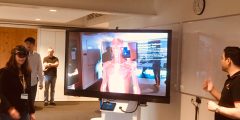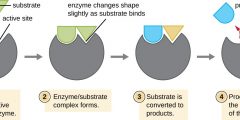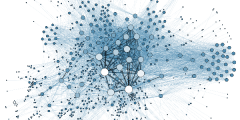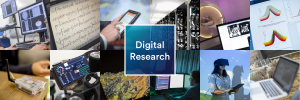Introducing Trusted Research Environments
May 31, 2022
The UoN Trusted Research Environment (TRE) Service is now live. The University of Nottingham’s pioneering Trusted Research Environment (TRE) platform is now live, enhancing the University’s research capabilities. Hosted by Digital and Technology Services (DTS) in Microsoft Azure, the secure data platform is available to researchers, partnered institutions and trusted organisations working with highly sensitive …
HoloLens 2 and research
May 27, 2022
This week, we trialled HoloLens 2 technology with colleagues from the School of Life Sciences, the Biodiscovery Institute, the School of Education, the Nanoscale & Microscale Research Centre, and the Hounsfield Facility. The workshop was led by InterReality Labs, with support from Microsoft. The HoloLens 2 is an untethered, wearable device that can project holographic …
Automated anonymisation of texts and transcripts
November 22, 2021
In this blog, we discuss an automated process for anonymising interview transcripts, patient notes, or other free-text data containing personal information. Colleagues wishing to share participant notes or interview transcripts, for example as publication appendices or in a research data repository, will likely need to anonymise the data. Anonymisation also comes with a number of …
Creating UoN Research Link
November 9, 2021
In this blog, we talk about how we created UoN Research Link and some of the technical and design decisions taken. What is UoN Research Link? UoN Research Link lets you search for University of Nottingham colleagues according to research interests and expertise. It can help researchers identify collaborators from across the University’s campuses. You …
CITRUS – Smarter Power
March 22, 2021
Changing Times How we are using energy is changing. Not only how the energy is generated, but where and when it is used. These changes mean that we are now pushing the limits of how we expected to use our traditional gas-fired power stations, both in terms of the longevity of these sites, the operation …
Going Greener Digitally with Enzymes
September 22, 2020
Nature is the Best Chemist Nature is the best synthetic chemist, capable of manufacturing chemicals in an energy-efficient manner and with biodegradable by-products. Millions of years of evolution have explored and optimized reaction pathways, and we would be foolish not to exploit that chemistry. Critical to this efficiency are enzymes – biological catalysts – that are not consumed by …
Programming – it’s all a question of style!
August 24, 2020
Today we look at the creation and potential reuse of programming code. An inordinate amount of code is created by researchers and academics at the University, but how much of it is ever reused? Is it possible to reuse it, potentially by someone from another faculty, school or department? Can it be easily understood by …
How prototyping helps us move ideas off the drawing-board
August 4, 2020
This post describes how Digital Research uses Microsoft 365 tools like Power Automate to prototype future services, in collaboration with researchers. The Digital Research Specialists are often relied upon to bring researchers into the process of developing new digital services. Sometimes – when a service doesn’t exist yet – we also build our own “rapid …
Making data meaningful for those with colour blindness
June 30, 2020
We look at some of the open source software helping researchers to make their research findings accessible to those with colour blindness, driving equality and inclusiveness. Eight percent of men are affected by colour vision impairment, having difficulties distinguishing between colours and thereby confusing certain colours that the majority of people see readily. As researchers …
Expand your research possibilities
June 25, 2020
Expand your research possibilities, share your research, find an expert. In an increasingly digital world, new technologies can help develop research by boosting the reuse of data and developing new collaboration opportunities. Reusing research provides numerous benefits. In the first instance, accessing current or previous data sets, information, and knowledge can help support and develop …












Recent Comments